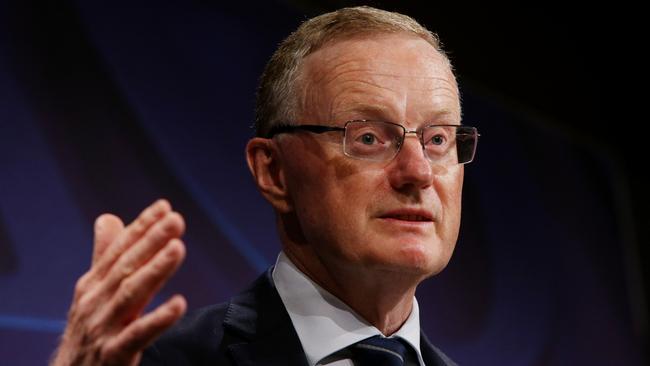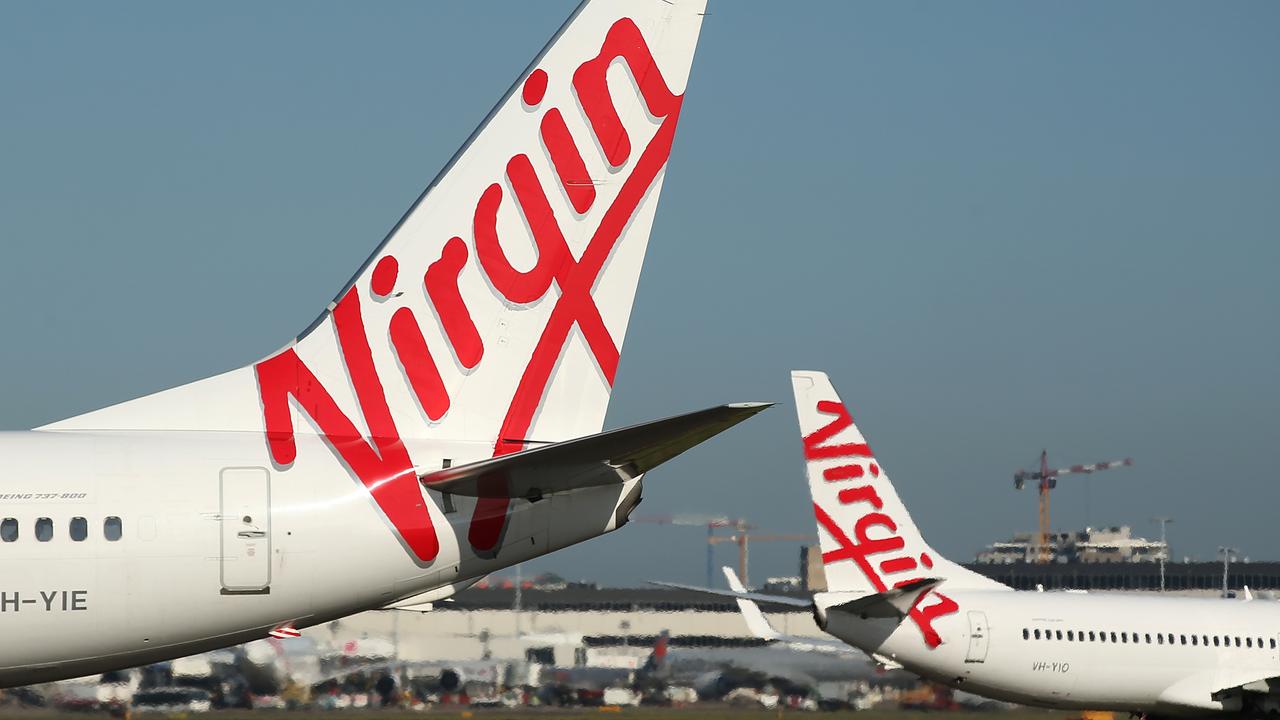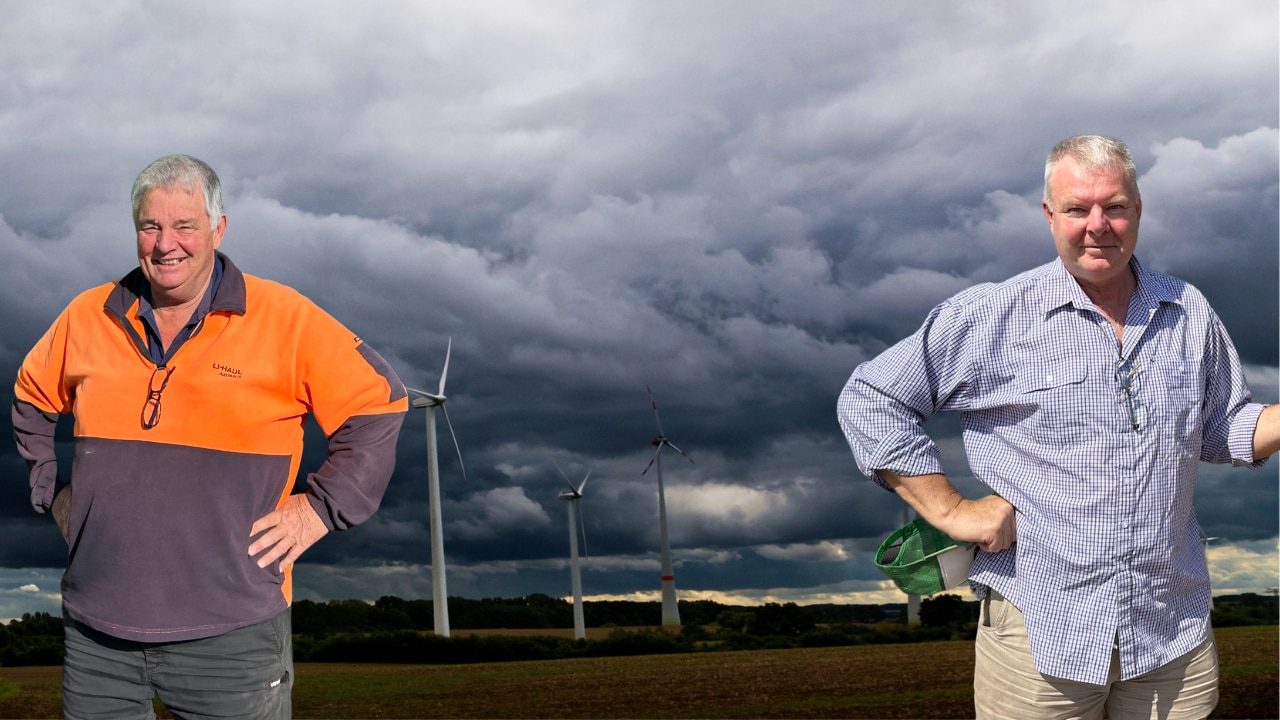Safe bet on no rate hike in election campaign as RBA keeps powder dry
Reserve Bank governor Philip Lowe has all but ruled out a rate hike in the coming election campaign.

Business
Don't miss out on the headlines from Business. Followed categories will be added to My News.
Scott Morrison’s sigh of relief reverberated around the country on Tuesday when the Reserve Bank appeared to rule out a rate hike in the election campaign.
Philip Lowe’s predecessor Glenn Stevens was the last RBA governor to pull that stunt, lifting the cash rate by 25 basis points to 6.75 per cent in November 2007 in the dying days of the Howard government.
Lowe will not be so bold, even though the statement he released after the April board meeting was surprisingly hawkish.
Perhaps a small-target strategy is best suited to the volatile political environment, with both major parties committed to an independent review of the RBA after the election.
Interest rate expectations will of course be a major feature of the campaign.
However, the governor all but ruled out mimicking Stevens, commenting that “important additional evidence” on inflation and wages growth would be available in the coming months, which would be assessed to support full employment and inflation in the target range of 2-3 per cent.
While the inflation data will be released during the campaign on April 27, the wages data won’t come out until the second half of May, by which time the result will be known.
In hindsight, the RBA has consistently rolled back its dovish position on inflation since it first said a rate hike was unlikely until 2024.
Late last year, 2023 became a possibility, and in March a policy tightening this year was suddenly “plausible”.
The key difference in Tuesday’s statement was the RBA dropping its guidance that it would be “patient” for inflation to kick up as a result of wages growth.
It also acknowledged some sectors of the economy had experienced larger wage increases than the relatively low rates more broadly.
“Given the tightness of the labour market, a further pick-up in aggregate wages growth and broader measures of labour costs is in prospect,” Lowe said.
Inflation, meanwhile, was at 2.6 per cent or 3.5 per cent in underlying terms, but higher prices for petrol and commodities will result in a further inflationary boost over coming quarters.
The market responded as expected – equities reversed but were still up on the day, the dollar surged and bonds rose.
There is no change in expectations of a June rate hike, but three additional increases are forecast for this year, with the cash rate closing out 2022 at 1 per cent.
Labour of love
You don’t need to be a lawyer to understand that simplifying the nation’s financial services legislation is the law reform equivalent of a crash course in advanced quantum physics.
Yet that was the three-year project handed to the Australian Law Reform Commission in September 2020.
The Corporations Act, which began life in 2002 as a mere pamphlet running to 1866 pages, has now mushroomed to 3900 pages, with its accompanying regulations and instruments keeping up with the pace. The Act idly boasts about its 33 chapters – more than any other Commonwealth legislation – and is so confident in its omnipotence that it happily shares the limelight with 24 other pieces of legislation relevant to financial services.
On Monday, ASIC chair Joe Longo told this newspaper there was “no silver bullet” capable of delivering a more streamlined and efficient Corporations Act.
He was absolutely right, on a number of fronts.
The first was the ALRC’s need to slice the project into a number of – hopefully – bite-sized chunks, starting with last November’s first interim report and its core finding that the regime was too complex and hard to navigate.
The second interim report, due in September, will include proposals on the design of new laws, for which a discussion paper was issued last month.
The ALRC expects to hand down its final report in late 2023.
While the mammoth project has become more digestible, the lack of a silver bullet was also demonstrated by the sheer number of threshold issues, not the least of which was the requirement for financial services licensees to act “efficiently, honestly and fairly”.
As Longo noted, the discussion paper for the second interim report proposed substituting the word “professionally” for efficiently, and separating each of the three words into stand-alone paragraphs. A note would then be included with examples of conduct which failed to meet the “fairly” standard.
The ASIC chairman said he and Bob Austin had given keynote speeches at a recent event where the former NSW Supreme Court judge questioned the need for change because the phrase was well-understood. In other words, if ain’t broke, don’t fix it.
Longo took it further, telling Four Pillars that “sufficiently, honestly and fairly” was an example of principles-based law, as opposed to the black-letter law which had led to the modifications and exemptions now bedevilling the Corporations Act.
“It’s a compendious concept, and so you might say: ‘Okay, that’s what we want’,” he said. “But the ALRC is interested in changing one of the words, so there’s still going to be debate about whether the formulation is correct.
“And second, the proposal is to change how it’s structured. Well, Bob Austin would say: ‘Leave it alone’. So that just gives you one example of how hard this is.”
Twitter: @Gluyasr
More Coverage
Originally published as Safe bet on no rate hike in election campaign as RBA keeps powder dry




